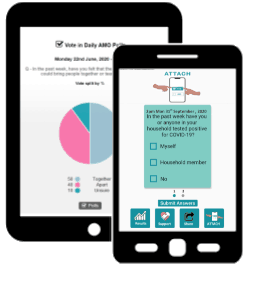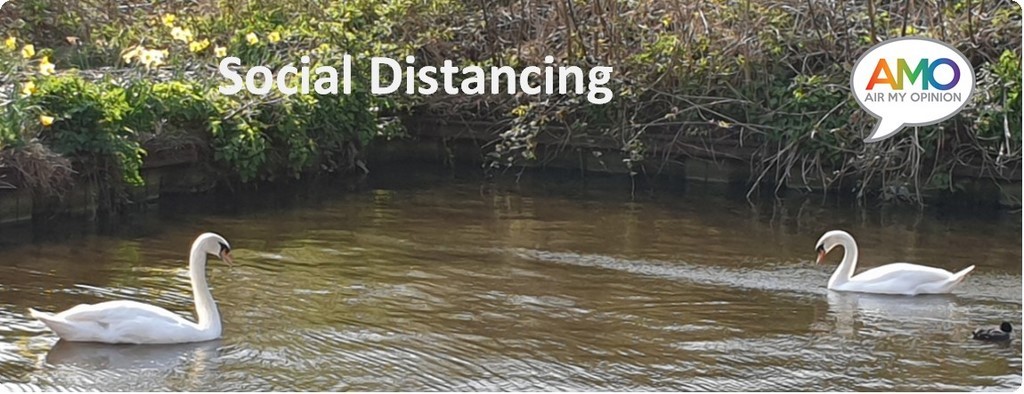Social Distancing
What does ‘social distancing’ mean?
Social distancing aims to drastically reduce the amount of social interaction amongst an entire population in order to reduce the spread of a deadly virus, like Covid-19.
What should I do?
- Avoid contact with someone who is displaying symptoms of coronavirus (COVID-19). These symptoms include high temperature and/or new and continuous cough.
- Avoid non-essential use of public transport when possible.
- Work from home, where possible. Your employer should support you to do this. Please refer to employer guidance for more information.
- Avoid large and small gatherings in public spaces, noting that pubs, restaurants, leisure centres and similar venues are currently shut as infections spread easily in closed spaces where people gather together.
- Avoid gatherings with friends and family. Keep in touch using remote technology such as phone, internet, and social media.
- Use telephone or online services to contact your GP or other essential services
Who does this apply to?
Anyone who is/has:
Anyone who is/has:
- aged 70 or older (regardless of medical conditions)
- under 70 with an underlying health condition listed below (ie anyone instructed to get a flu jab as an adult each year on medical grounds):
- chronic (long-term) respiratory diseases, such as asthma, chronic obstructive pulmonary disease (COPD), emphysema or bronchitis
- chronic heart disease, such as heart failurec
- chronic kidney disease
- chronic liver disease, such as hepatitis
- chronic neurological conditions, such as Parkinson’s disease, motor neurone disease, multiple sclerosis (MS), a learning disability or cerebral palsy
- diabetes
- problems with your spleen – for example, sickle cell disease or if you have had your spleen removed
- a weakened immune system as the result of conditions such as HIV and AIDS, or medicines such as steroid tablets or chemotherapy
- being seriously overweight (a body mass index (BMI) of 40 or above)
- those who are pregnant
Background and scope of guidance
This guidance is for everyone, including children. It advises on social distancing measures we should all be taking to reduce social interaction between people in order to reduce the transmission of coronavirus (COVID-19). It is intended for use in situations where people are living in their own homes, with or without additional support from friends, family and carers. If you live in a residential care setting guidance is available.
%SHARETHIS%
Help researchers help you!

Take part in this novel research to make a change
- Share your opinion as your voice matters
- Help us understand everyone’s experience
- No bias, just science
- Help us improve future responses
AMO sends your votes securely via standard SMS, these are usually included free in UK airtime bundles. Ask your mobile supplier if you get inclusive SMS to standard UK mobiles.



